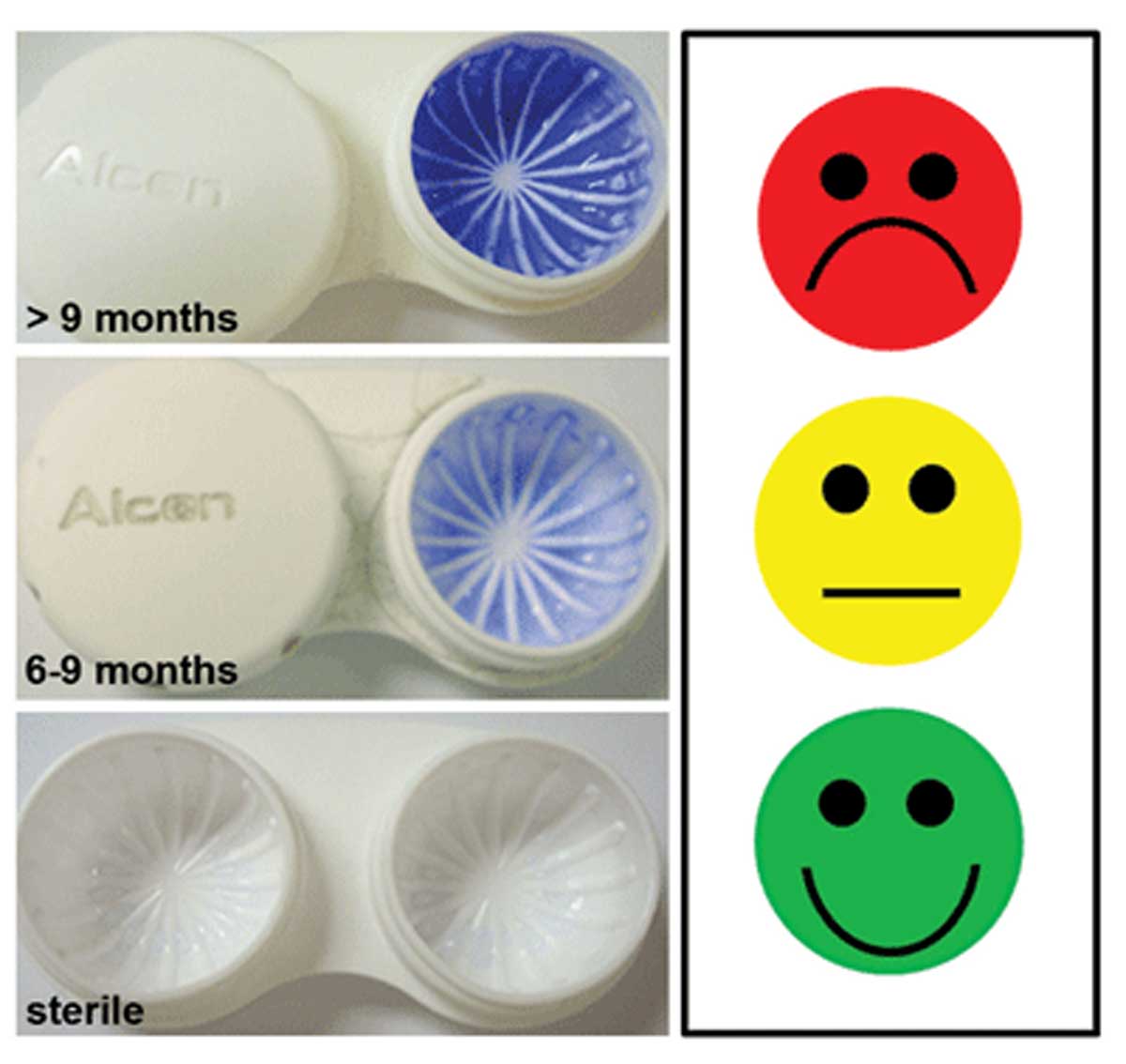 |
| Consistently reminding contact lens wearers to properly clean their lens cases may help improve the currently low rates of compliance. Photo: Danielle M. Robertson, OD, PhD. Click image to enlarge. |
Knowing might not make all the difference, after all. It might be fine to let some things slide, but taking shortcuts with contact lens storage case cleanliness and replacement has become quite noticeable. Researchers in Spain determined that individuals admitting to failing to replace cases periodically, never replacing their lens cases at all and even using tap water. However, patient perception of risk associated with some of these bad habits was high. The study believes that efforts that not only increase risk awareness through education but also make follow through a priority.
The researchers used a self-reported survey to collect demographic and lens wear details, compliance with storage case care and type of received information from their practitioner. The final section involved risk perception, where participants were asked to identify the main consequence of poor compliance with storage case care and to rate from one (no risk) to five (maximum risk) their perception of the risk associated with several habitual non-compliant practices. Participants noting “daily disposable” as their replacement schedule were instructed to discontinue answering the survey and were excluded from the study.
The study analyzed 299 completed surveys, with a median age of 24 years (76.9% females). The majority were monthly replacement silicone hydrogel contact lenses and multipurpose solutions. Most participants were experienced contact lens users, with 30.8% of respondents having used their contact lenses for five to 10 years and 38.1% for more than 10 years.
Nevertheless, self-reported compliance with storage case care was poor, with 19.1% of respondents never cleaning their cases, 68.6% exposing them to tap water and 26.4% failing to replace them within six months of acquisition. The researchers found that two-thirds of respondents received specific information on case maintenance, mainly in oral form. They also noted that that 60.3% of participants who received written information failed to read it afterwards, which may help explain the actual lack of effect of information on compliance.
However, perceived risk associated with poor-compliance practices was high (median values of four and five) and increased with educational level on handwashing and case hygiene, years of lens wear experience and in those patients provided with specific information on contact lens case care.
The study suggested handing a free new storage case to all patients acquiring a bottle of solution as an effective means to improve storage case replacement practices. Although most bottles of solutions already include within their package a new contact lens storage case, both manufacturers through appropriate labelling and practitioners through education should reinforce the need to replace the storage case.
Because risk perception was found to increase in participants receiving specific instructions regarding storage case maintenance, the researchers believe that risk awareness could be more malleable than actual compliance practices. “Practitioners may be encouraged to stress to their patients the need to read the information provided to them at home and to implement frequent reminders to refresh this information,” they wrote in their paper.
They also proposed potential mobile apps that, via gamification and the awarding of kudos or achievements, encourage young lens wearers comply with care and replacement practices. “These types of apps may also be employed to send notifications and periodic reminders, such as expiration dates of solutions, date of storage case replacement or follow-up appointments,” they noted.
Cardona G, Alonso S, Yela S. Compliance vs. risk awareness with contact lens storage case hygiene and replacement. Optom Vis Sci. February 14, 2022. [Epub ahead of print]. |


